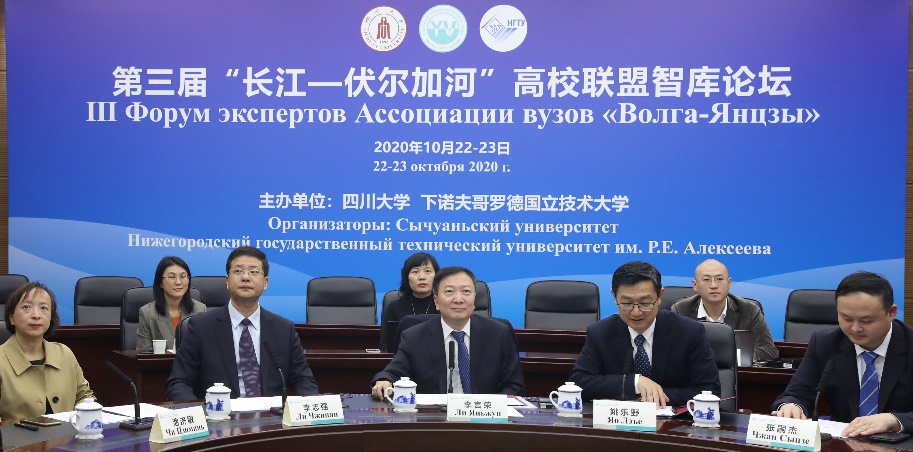
The “Yangtze–Volga” University Alliance (short for the Sino–Russian University Alliance of the Upper and Middle Reaches of the Yangtze River and the Federal District Along the Volga River) successfully held its third forum from October 22nd to 23rd under the joint sponsorship of Sichuan University and Nizhny Novgorod State Technical University. The forum was attended byCounsellor Zhang Weili of the Department of European–Central Asian Affairs of the Ministry of Foreign Affairs,Deputy Plenipotentiary Representative Mashkovtsev of the Russian President’s Office of at the Federal District along the Volga River, Director Guseva of the Foreign Affairs Office of Nizhni Novgorod, Representative Zvyagin of the Russian Ministry of Foreign Affairs in Nizhni Novgorod, PresidentDmitriyevof the Nizhny Novgorod State Technical University (head of the Russian side), President Li Yanrong (head of the Chinese side) and Vice President Yao Leye of Sichuan University, and other leaders, guests, experts and scholars from more than thirty Chinese and Russian universities. Vice President Yao presided over the opening ceremony.
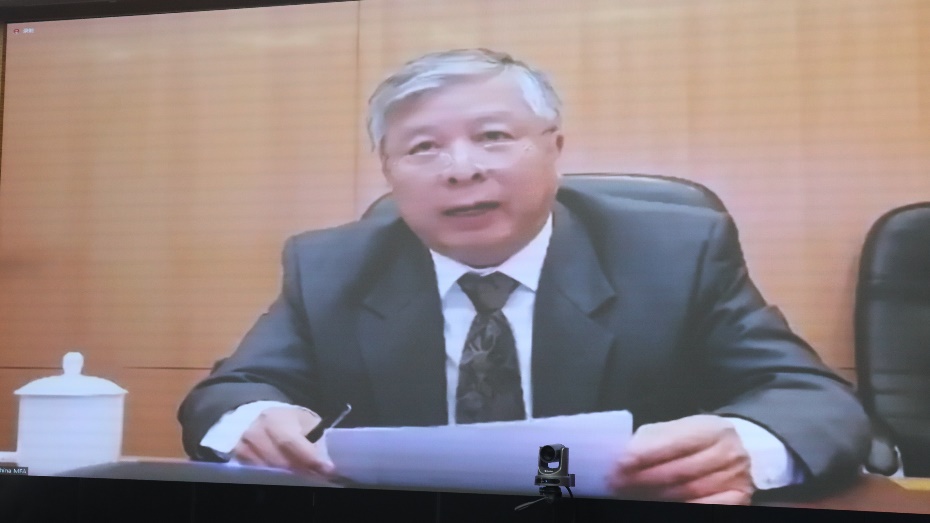
Counsellor Zhangpointed out in his address that the “Yangtze–Volga” University Alliance is a great example of deepening educational cooperation between the two countries, which plays an increasingly important role in people-to-people exchanges under the framework of the Yangtze–Volga cooperation mechanism. Since its founding, it has been a leading force in regional partnership, academic exchanges, the commercialization of research results and the training of high-caliber talent. The Yangtze–Volga region will have new opportunities and challenges in the post-pandemic era. Thus, the hope was expressed that the wisdom shared by experts and scholars will contribute to Sino–Russian exchanges and cooperation and the development of a comprehensive and strategic Sino–Russian partnership during this new era.
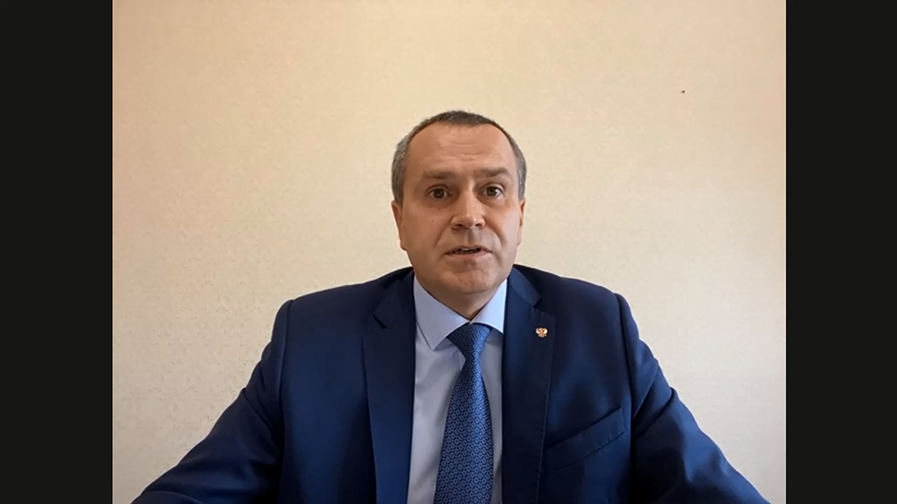
In his address, Deputy Plenipotentiary Representative Mashkovtsev stated that since the founding of the “Yangtze–Volga” University Alliance, fruitful results have been achieved in high-end talent training, cooperation over scientific innovation and people-to-people exchanges. Though the forum was held virtually due to the coronavirus, the forum’s high quality was not undermined. The topics were diverse and thought-provoking. It was hoped that through this forum, China and Russia will further their cooperation in fields such as artificial intelligence, the application of 5G technology and young talent training to contribute to deepening the two countries’ friendship and achieving common development.
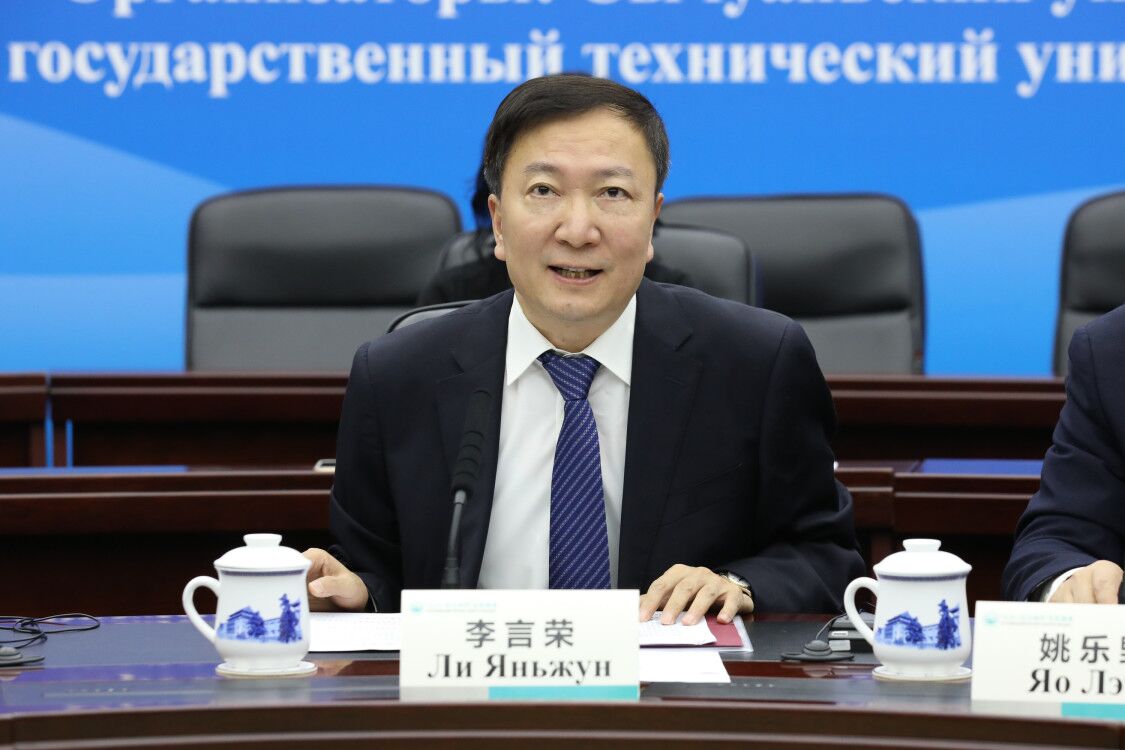
In his address, President Li congratulated the forum’s commencement and expressed thanks to all the guests on behalf of SCU and other Chinese universities. He noted that China and Russia are close neighbors, friendly partners and good friends bound by mountains and rivers. The university alliance formed along two river basins has been an important manifestation of the strong friendship between the two countries. The COVID-19pandemic has affected universities around the world to varying degrees, including member universities of the alliance. This forum, focusing on the prospects and visions for Sino–Russian cooperation, as well as exchanges and cooperation between Chinese and Russian universities in the post-pandemic era, was of great relevance. More than ever, pragmatic and effective cooperation is needed to overcome these difficulties. As the leading Chinese university of the alliance, Sichuan University stands ready to work proactively with its counterparts to promote cross-cultural exchanges and bilateral educational cooperation in the following four aspects, a student exchange program within the alliance, an initiative for collaborative scientific and technological innovation, people-to-people exchanges to promote cross-cultural understanding and an initiative for establishing local think tanks through cooperation. Through these joint efforts, an even brighter future for the educational alliance can be achieved between the two countries.
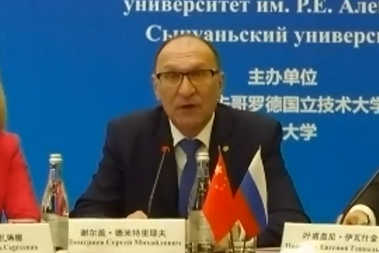
President Dmitriyev noted in hisaddress that since the founding of the “Yangtze–Volga” University Alliance, the universities in the alliance have carried out extensive and in-depth cooperation in student training, scientific research, innovation, people-to people-exchanges and mutual faculty visits. A series of fruitful results has been achieved, with important contributions to promoting bilateral ties and to deepening the friendship between the two peoples. Facing the impact of COVID-19, it is hoped that the universities from both sides will continue to deepen cooperation with fresh ideas and approaches in contributing to overall development of science and education in both countries.
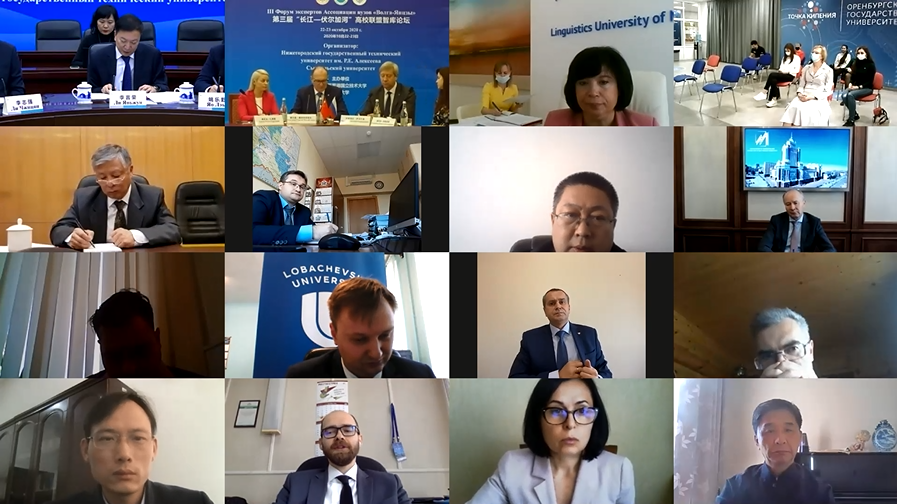
The forum was attended by leaders, guests, experts and scholars from Russian universities, such as Nizhny Novgorod State Technical University, the National Research University Higher School of Economics (Nizhny Novgorod), Nizhny Novgorod State Linguistics University, Nizhny Novgorod State University, Saratov State University, Bashkir State Medical University, Orenburg State University, the National University of Moldova, Chuvash State Pedagogical University, Vyatka State University and Samara State Technical University, and from multiple Chinese universities, including the University of the Chinese Academy of Social Sciences, Wuhan University, Central South University, Chongqing University, Southwest Jiaotong University, Central China Normal University, Huazhong Agricultural University, Hefei University of Technology, Hunan Normal University and Sichuan Normal University. Topics including “Sino–Russian cooperation in trade, science and technology, and people-to-people exchange in the post-pandemic era” and “exchanges and cooperation between Chinese and Russian universities in the post-pandemic era” were discussed in great depths. Experts at the meeting presented and exchanged views on post-pandemic international collaboration, foreign language training and legal issues in scientific and technological international cooperation.
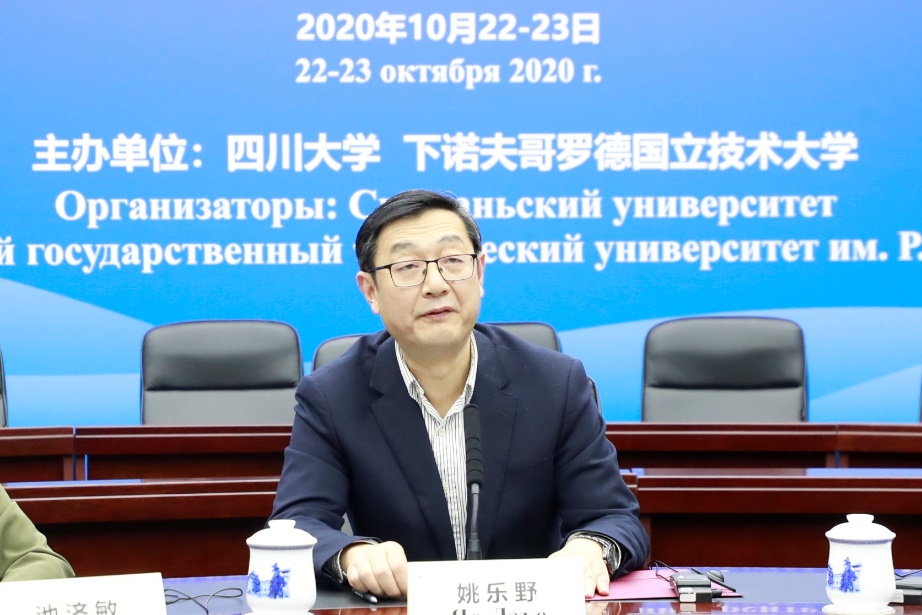
At the closing ceremony of the forum, Vice President Yao expressed his gratitude to the attendees and briefly summarized the results of the forum. He expressed hope that the two sides will continue to carry out multi-level and wide-ranging cooperation in the fields of language, culture, economics, science and technology to jointly cultivate interdisciplinary talent and build world-class universities and disciplines. In the long run, the alliance will provide support for regional cooperation between the two countries. There are high hopes that the newly kindled ideas of this forum will soon become a reality and be transformed into the drivers of more and better bilateral exchange and cooperation in science and education.
(All Chinese names begin with the family name.)
